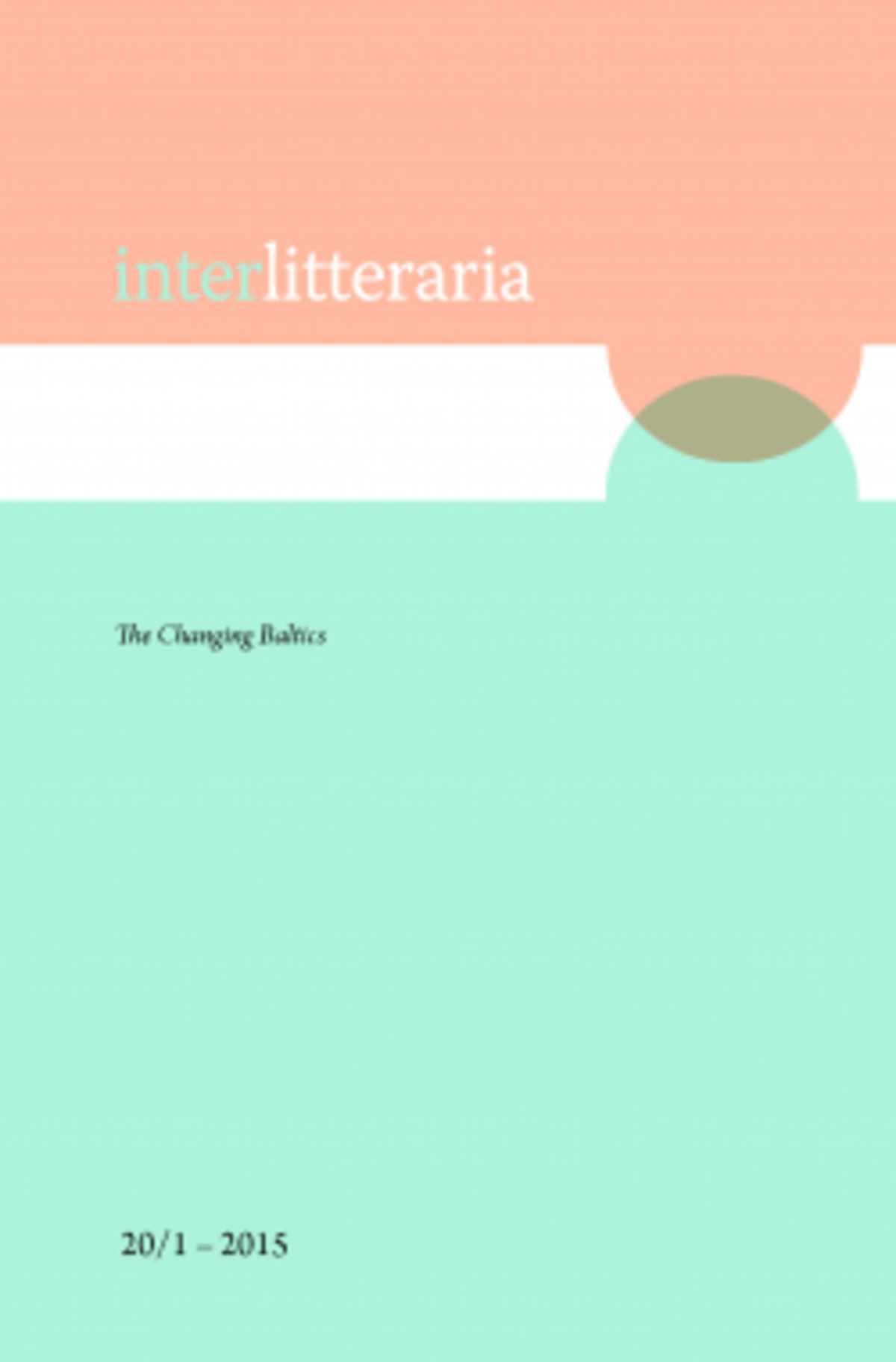
This issue of Interlitteraria has been published within the framework of the Latvian Council of Science project “Literature as a Medium of Creating the Translated Identity of Self: The Case of Transformations of Latvian National Ideology in the Fin de siècle Period” (410/2013) and with the financial support of the Cultural Endowment of Estonia (Eesti Kultuurkapital) and the University of Tartu.
Founded in 1996, Interlitteraria is the peer-reviewed journal of the Chair of Comparative Literature of the University of Tartu and the Estonian Association of Comparative Literature. Interlitteraria publishes original articles in English, French, German and Spanish, in the field of comparative literature. Interlitteraria is indexed in ER IH PLUS (European Reference Index for the Humanities), CEEOL (Central and Eastern European Online Library) and DOAJ (Directory of Open Access Journals), and is scheduled to be included in EBSCO Publishing’s databases. Interlitteraria is edited by Jüri Talvet (editor-in-chief) and Katre Talviste (managing editor).
The Summer 2015 issue of Interlitteraria offers its readers a series of articles resulting from the conference "The Changing Baltics: Cultures within a Culture". The conference was held in September, 2014 in Riga, and was organized by the Institute of Literature, Folklore and Art of the University of Latvia in co-operation with the Under and Tuglas Literature Centre of the Estonian Academy of Sciences and the Institute of Lithuanian Literature and Folklore.
This issue has been edited by ILFA researchers Pauls Daija, Eva Eglāja-Kristsone, and Benedikts Kalnačs.
Another series of articles based on the "Changing Baltics" conference will be published in the Winter 2015 issue.
In the introduction, the editors accentuate the fact that, over the past two decades, the Baltic example has proven to be a vibrant site for transforming cultural identities—both merging and conflicting. The literary processes that occur in socio-cultural border areas—negotiation, inclusion/exclusion, usurpation, borrowing, interpretation, which result in mixed or hybrid cultural forms, are not exclusively characteristic of the Baltics, however the Baltics provide a specific example of a growing sense of in-betweenness that can serve as a starting point for further discussions on the role literature and art play in responding to global challenges. Reflecting upon the Baltic experience prompts us to ask what lies behind the generally accepted designations: ‘national culture’, ‘national society’, ‘national literature’, etc. To what extent is it possible to see the Baltic example as unique ? Or does it mirror larger patterns of cultural change and an awareness of those changes and their capacity to produce new meanings? Answers to these questions may be sought by developing ‘border thinking’ and by looking for diverse cultural forms of representation, be it the relationship between one’s own and the unfamiliar (different), the dominant and the subdued, the central and the peripheral, the global and the local, the collective and the individual, the official and the unofficial, the accepted and the rejected, etc. Papers published in this volume include both case studies focusing upon the works of individual authors, as well as broader insights into literary processes concentrating on separate branches of literature (émigré, regional, minority literatures) or historical change through the centuries.
This issue contains articles written by scholars from Latvia, Estonia, Lithuania, and Italy.
The journal can be accessed here: ojs.utlib.ee/index.php/IL

 CONFERENCE
CONFERENCE